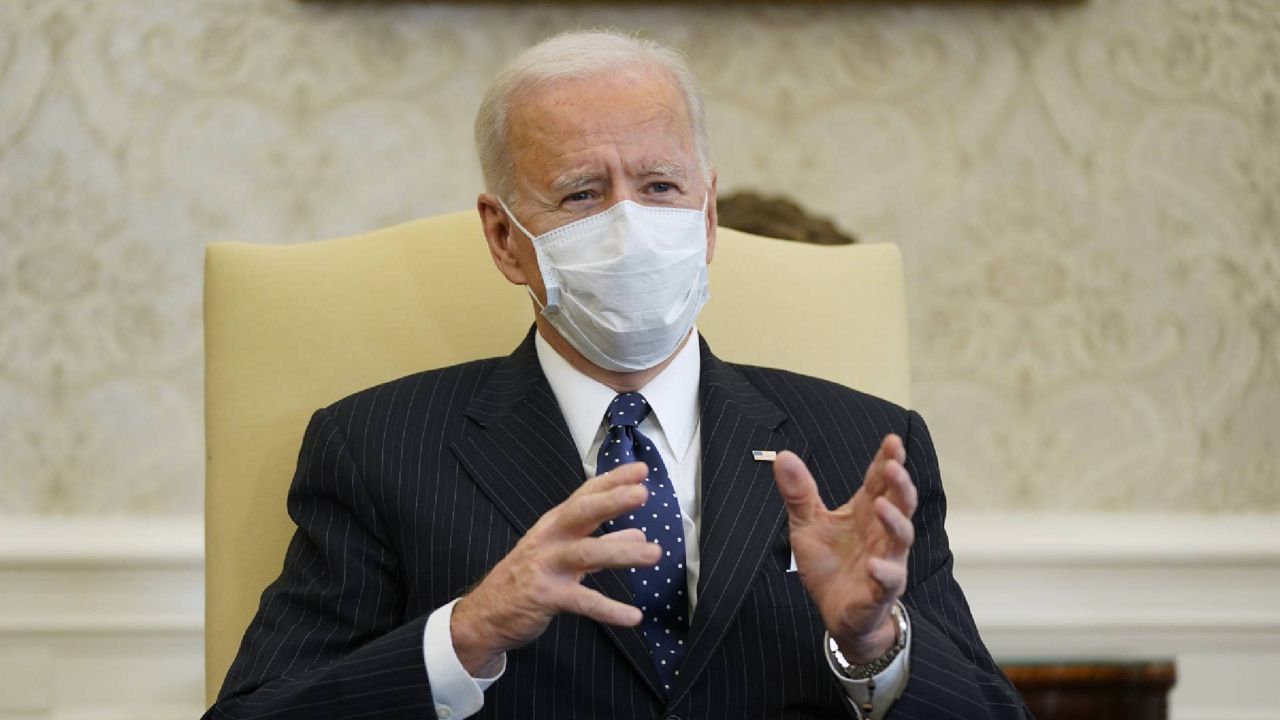With former President Donald J. Trump’s impeachment trial complete, both Congress and President Joe Biden can devote more attention to his proposed $1.9 trillion coronavirus relief bill, which is already making its initial rounds on Capitol Hill.
Here’s a look at where the bill stands and the outlook on some of its key provisions.
The budget reconciliation process is underway on the House side, including markups done last week by various House panels, including the House Ways and Means committee, which pushed forward the majority of the bill.
The budget reconciliation process makes it possible to pass the relief plan with 51 votes and avoid the filibuster.
The House Budget panel can now wrap together the parts of the bill reviewed in committees and package them into one measure, which they will report to the floor for a vote.
Congress is mostly off this week, but they’re still facing a mid-March deadline to pass the package, which is when additional unemployment benefits will lapse. They could consider the legislation as soon as next week.
While it’s expected to get through the House, the process won’t be straightforward. The Democratic majority in the chamber is slim — five votes — and more controversial measures, such as the minimum wage hike, could become a sticking point throughout the process.
The bill could then see some changes in the Senate before it gets a vote.
Polls – including recent surveys from Quinnipiac and ABC News-Ipsos – show that a majority of Americans like the idea of additional aid, but the bill still doesn’t have real Republican support in Congress.
"There's just one place that we don't have anybody that has signed on yet, and that's in the United States Congress," Cedric Richmond, a senior adviser to the president, told CNN Monday.
"There is no doubt that some families are still struggling. This isn’t finished," Minority Leader Mitch McConnell (R-KY) said of the bill earlier this month. "But experts agree the remaining damage to our economy does not require another multi-trillion dollar, non-targeted band-aid."
A group of ten Republican senators proposed their own, smaller version of a relief package and met with President Biden in early February, but it’s now clear that Biden’s $1.9 trillion proposal will win out and that it’s able to pass without Republican support.
Despite the president’s promise of unity, the administration has pointed away from Capitol Hill and to other signs of bipartisan support for the bill, like polls.
A recent CBS News poll showed that more than 80 percent of Americans support Congress passing more economic relief for people and small businesses, matching other recent surveys.
The bill also has the support of some mayors and governors on both sides of the aisle, and a bipartisan group of them met with President Biden on Friday. They called the meeting "positive" and productive, and they said they discussed a need for more funding for cities and states to address things like vaccinations.
"Obviously the people of our city and of America are still hurting,” said Republican Mayor Francis Suarez of Miami after the meeting Friday. "We need this assistance to get through until the vaccine has gained wide acceptance."
After discussions about the $1,400 payments being more targeted to lower income Americans, the checks are still planned for Americans making $75,000 per year or less, or $150,000 per year for couples. The bill would also include another $1,400 for each child or other dependent living in a household.
The payments will gradually decrease for people making up to $100,000, or $200,000 for couples.
Plus, mixed status families — where one taxpayer on a joint return is a citizen or has legal immigration status but the other does not — are also expected to be eligible for the payments. They were originally left out of the first round of $1,200 checks.
A measure to raise the federal minimum wage from $7.25 to $15 an hour over the next few years is still in the current proposal. But it could be a major sticking point when the bill reaches the Senate floor, and it may not make it in the final version of the package.
Democratic Senators Joe Manchin (D-WV) and Kyrsten Sinema (D-AZ) both oppose the minimum wage hike, and the overall bill still needs Democratic support even if it doesn’t get Republicans on board.
Plus, the Senate parliamentarian, who reviews budget reconciliation measures, could ultimately decide that the minimum wage hike can’t be lumped in with other pandemic-related relief.
"I don’t think it’s going to survive," President Biden told CBS News earlier this month.
Meanwhile, Bernie Sanders, who’s led the push for a higher minimum wage, said he was “feeling really good” about the measure on Friday.
Democrats could try to pass the minimum wage boost with other, separate legislation, but it will be a tougher battle, since the current relief bill only needs a simple majority to pass.
The bill would extend weekly, federal unemployment payments through the end of August and raise them from $300 per week to $400.
The plan would also extend two unemployment programs for people who don’t otherwise qualify for state benefits, such as those who are self-employed or those who already exhausted the maximum amount of state payments.
Those weekly benefits are set to run out after March 14 for more than 10 million Americans, which is the reason that Congress is rushing to pass Biden’s relief bill before then.
However, labor experts have pointed out that passing the bill too close to March 14 could create a delay in weekly unemployment payments, since state systems take time to adjust to changes.
The bill also includes money for vaccinations, testing and contact tracing — a bipartisan element of the legislation — plus funding for school resources, an important factor as the administration encourages schools to reopen. On Friday the CDC published its most specific guidance yet for K-12 schools to get back to in-person learning.



